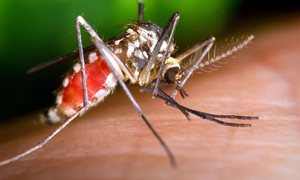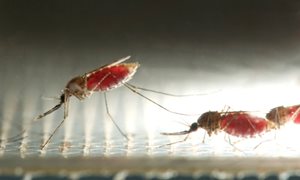
Radboud university medical center researchers Guido van Mierlo and Michelle Brouwer receive a Rubicon grant from Dutch scientific organization NWO. This grant is intended for young scientists with a doctoral degree to conduct research at foreign research institutes. The Rubicon program is intended to give young, promising scientists the opportunity to gain international research experience.
Unexpected player in brain development – Michelle Brouwer
Michelle Brouwer will work in Belgium at Vlaams Instituut voor Biotechnologie for two years. Her research is about our immune system, that possesses an arsenal of deadly proteins to attack pathogens. Surprisingly, one of these proteins appears important for normal brain development. She will therefore investigate how this protein exactly functions in the brain.
Translating the communication between DNA – Guido van Mierlo
Guido van Mierlo will work in Switzerland for 24 months at École polytechnique fédérale de Lausanne (EPFL). His research is about our DNA, that contains the information essential for our life. The researcher will develop novel tools to investigate how (disturbed) collaboration between pieces of DNA contributes to the onset of disease, or rather protection against this.
About Rubicon
Experience abroad is an important step in the career of many scientists. The Rubicon grant allows young researchers to conduct their research at top institutions such as Stanford and Harvard. The majority of researchers go abroad for 24 months. A total of 26 Rubicon researchers go abroad for 24 months, with the other 19 laureates going away for between 12 and 18 months.
With a Rubicon funding, scientists can spend up to 24 months doing research at a foreign research institution. The amount of funding depends on the chosen destination and the length of stay. Each year NWO can fund around 60 young researchers within Rubicon (for a total amount of seven million euros, divided over three rounds). The awards from this post concern two merged 2020 funding rounds.
-
Want to know more about these subjects? Click on the buttons below for more news.
More information
Pauline Dekhuijzen

wetenschaps- en persvoorlichter
Related news items

Grants for research on magnesium deficiency and malaria Vidis for Felix Hol and Jeroen de Baaij
1 July 2022 Radboudumc researchers Jeroen de Baaij and Felix Hol both receive an NWO Vidi grant for their research, respectively on magnesium deficiency in type 2 diabetes and on malaria. read more
Field research on malaria vaccine offers unexpected surprise
23 May 2022Field research on the effectiveness of a malaria vaccine, came up with unexpected results for an international group of researchers including Benjamin Mordmüller of Radboudumc. The vaccine evokes a broader response against malaria proteins than there are in the vaccine.
read more
Rubicon grants awarded to three RIMLS researchers
19 April 2022Three researchers have received Rubicon funding from NWO/ZonMw. This will enable Elke Muntjewerff, Laura de Vries and Laurens van de Wiel to do research at a foreign research institute for the next two years.
read more


